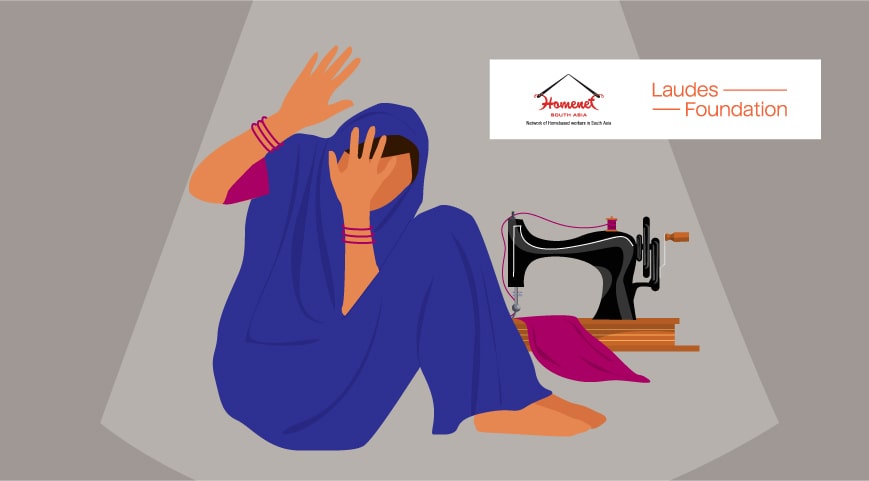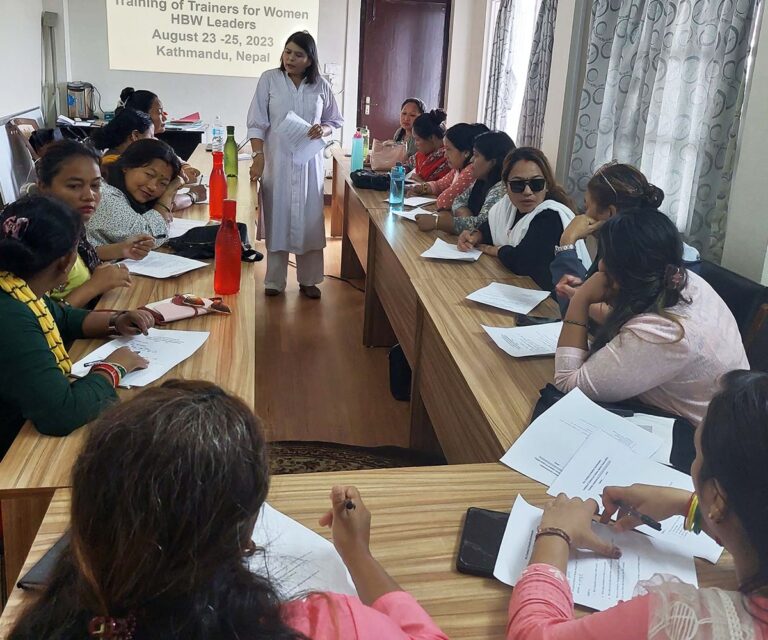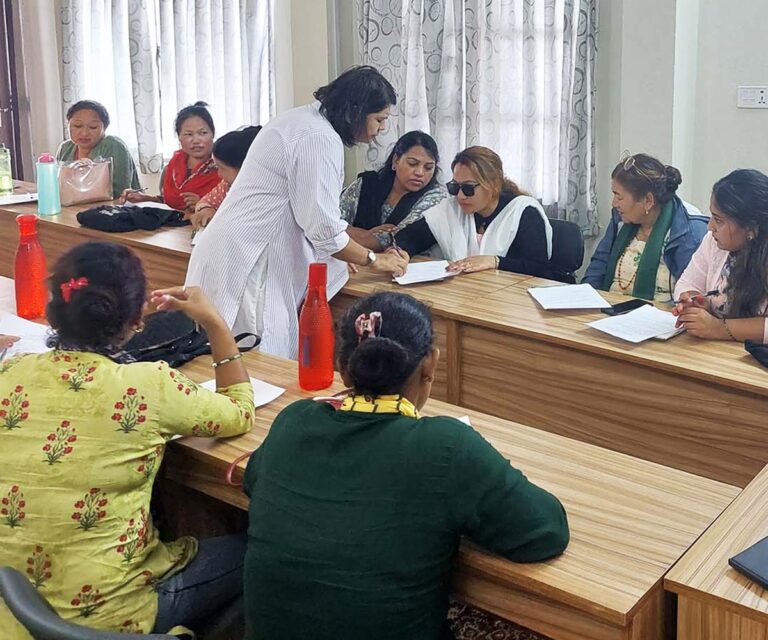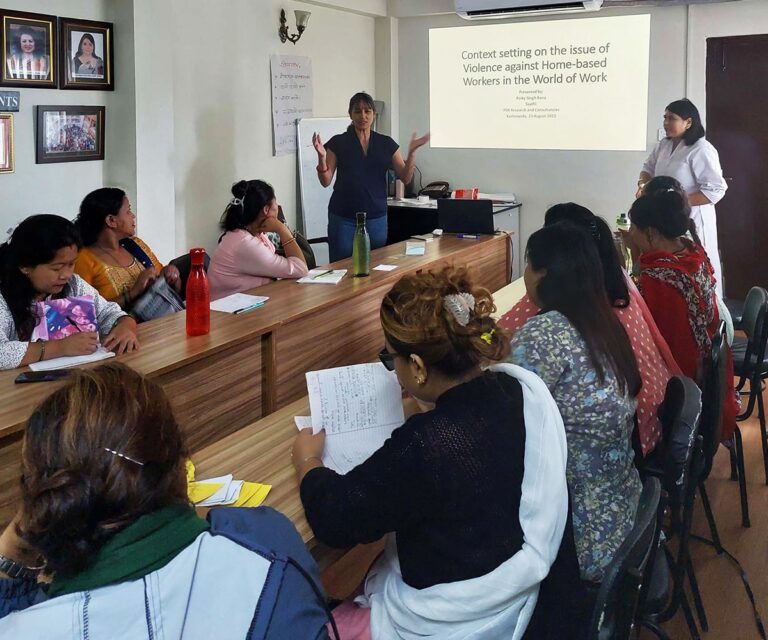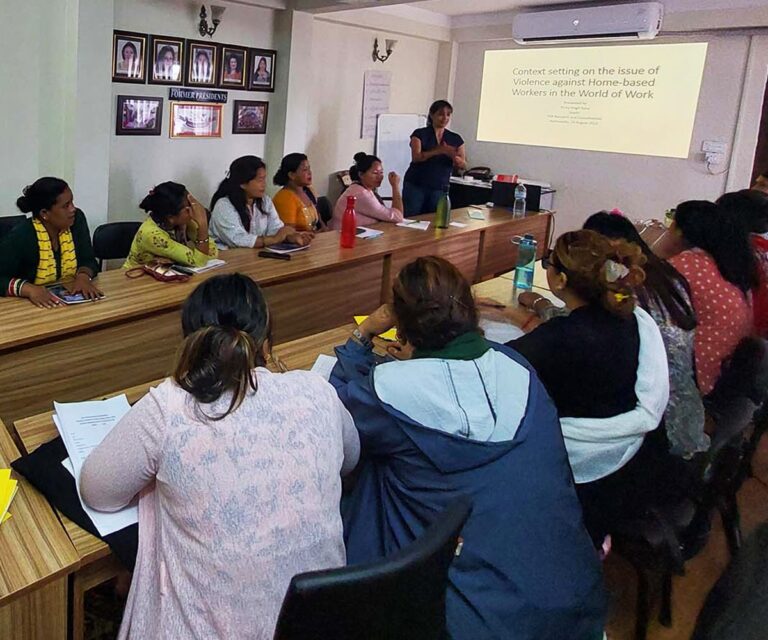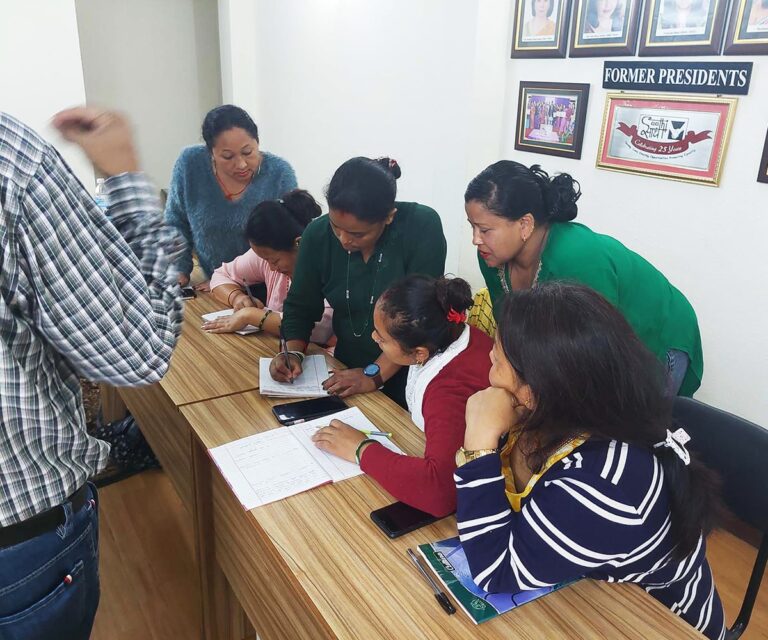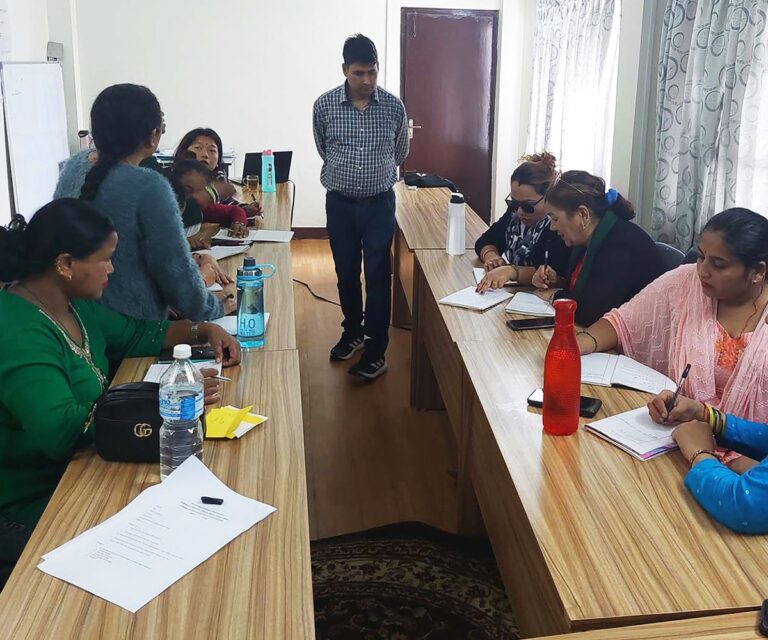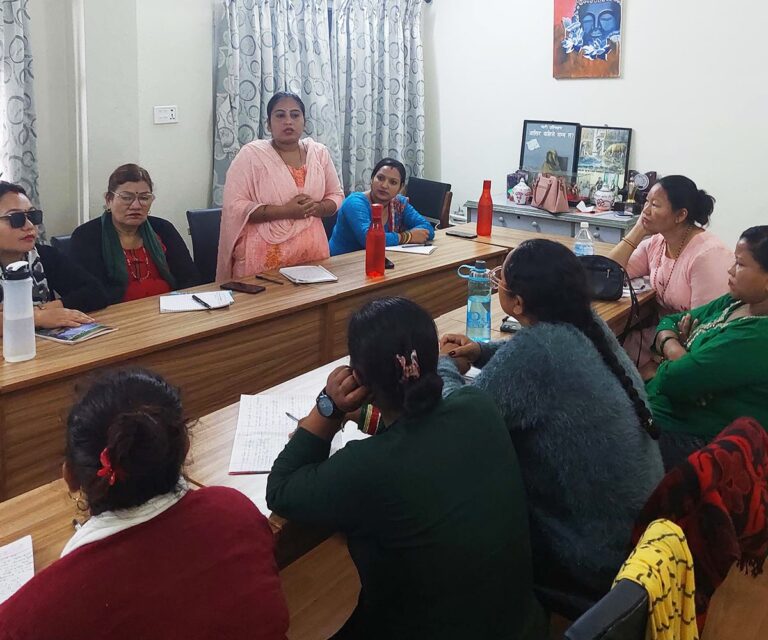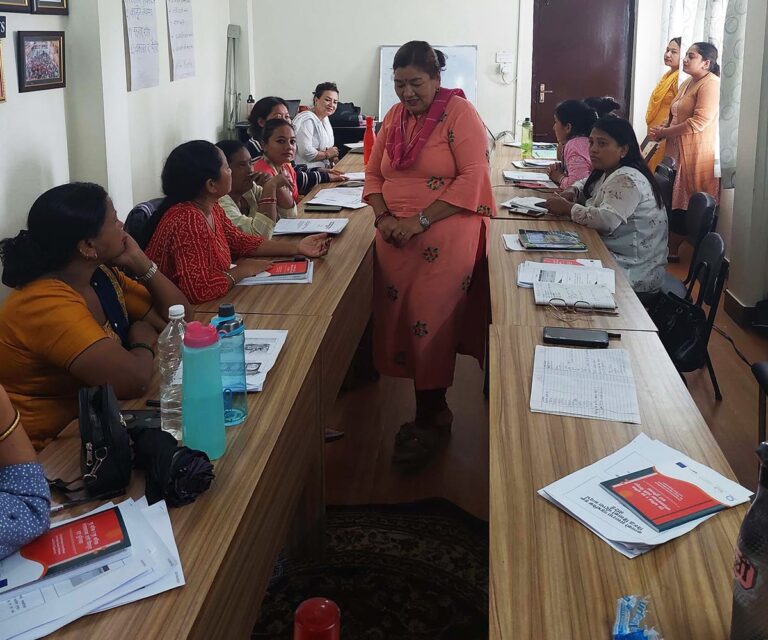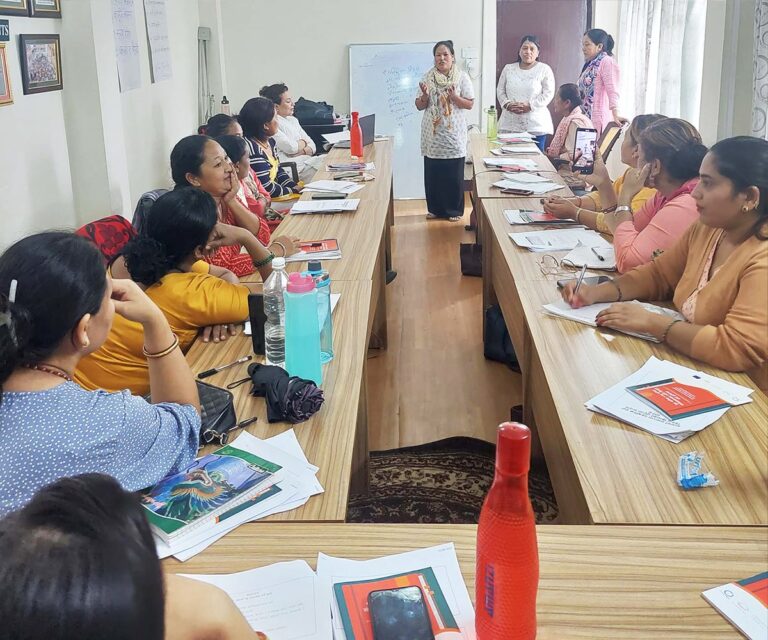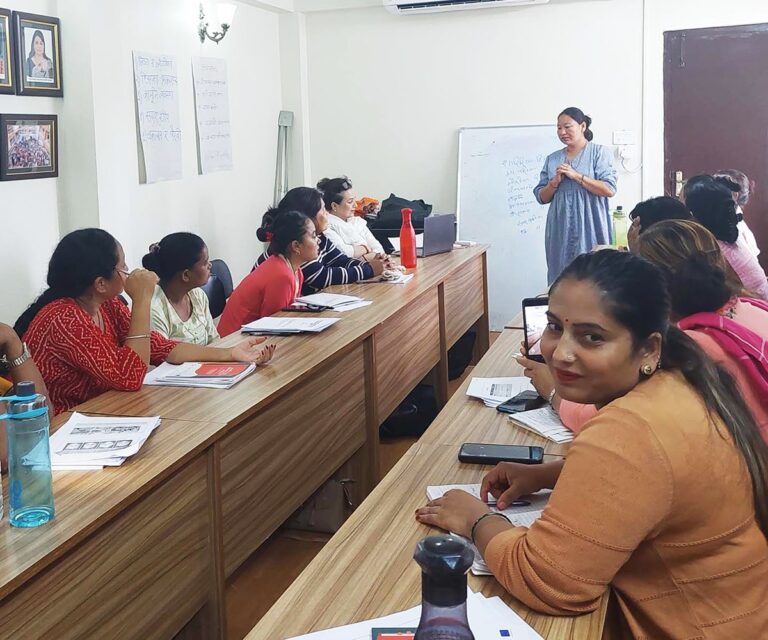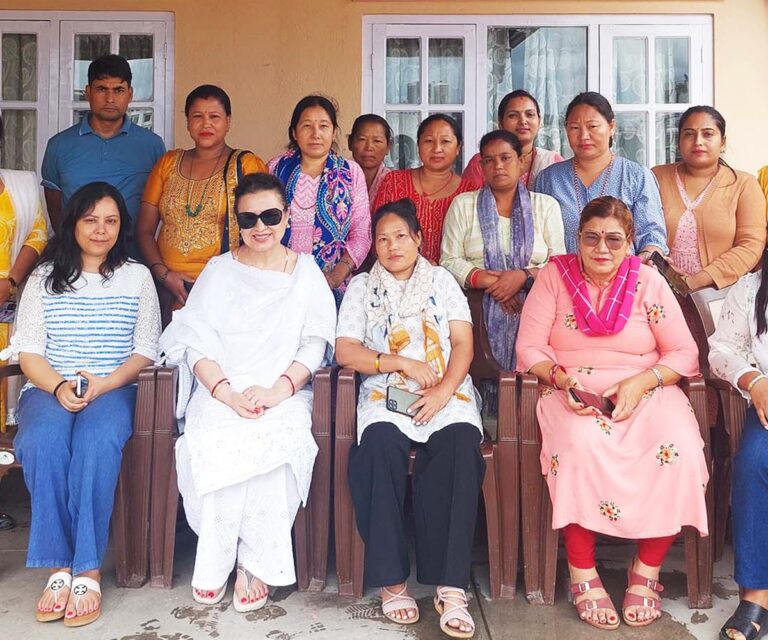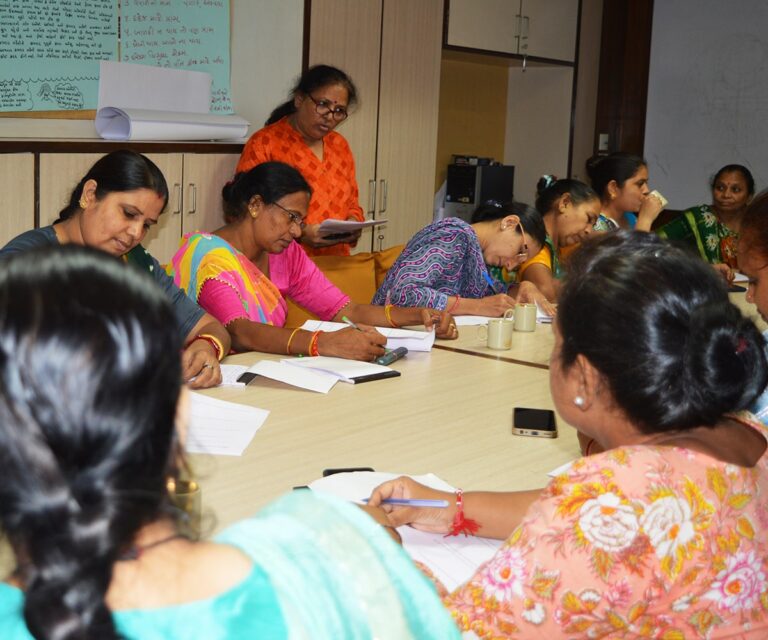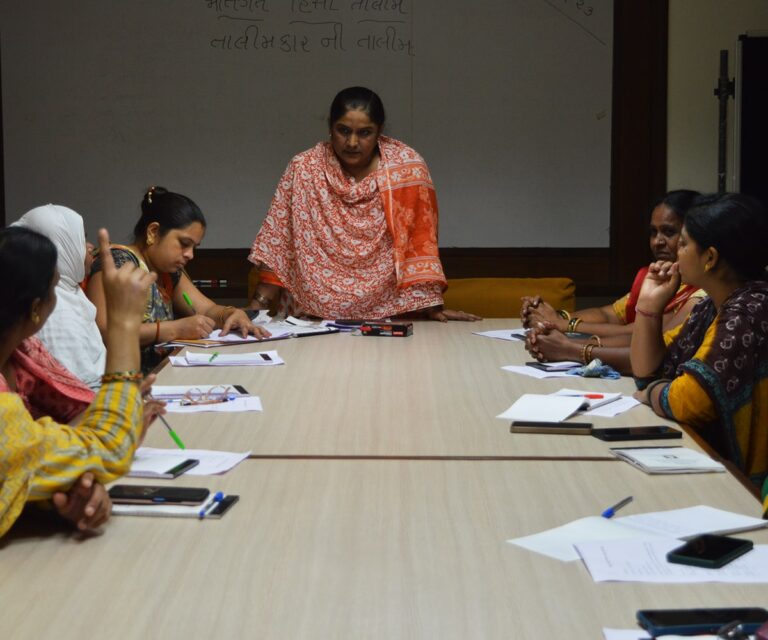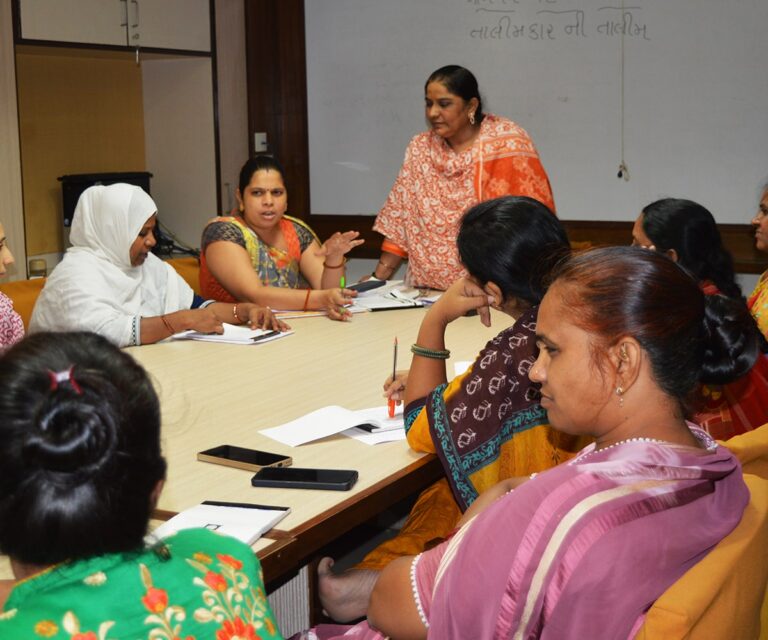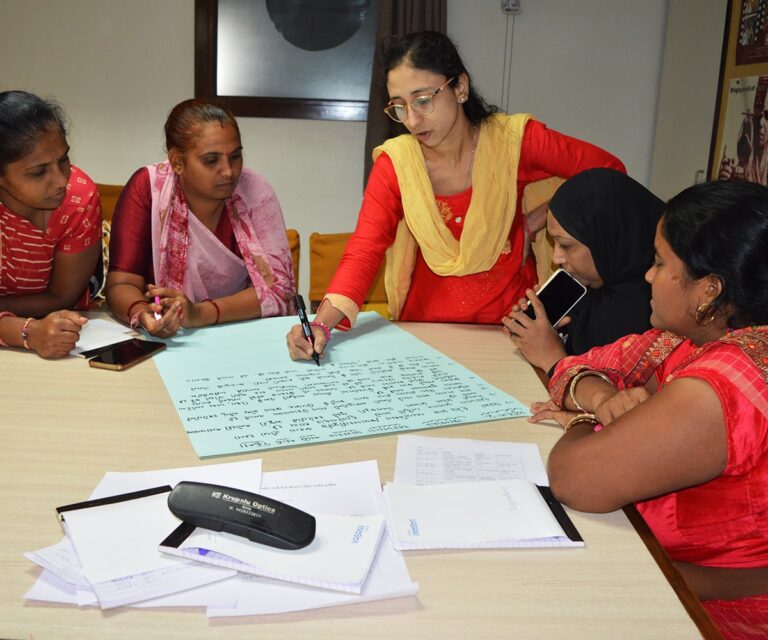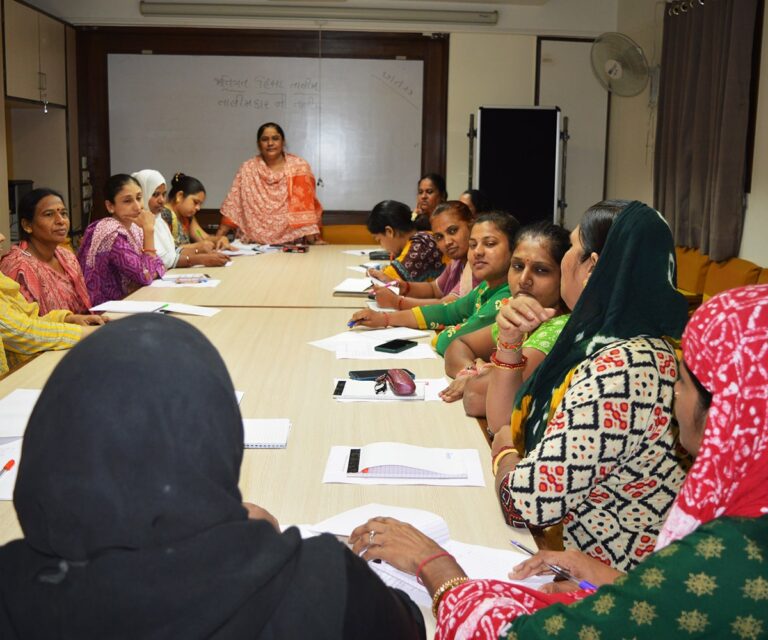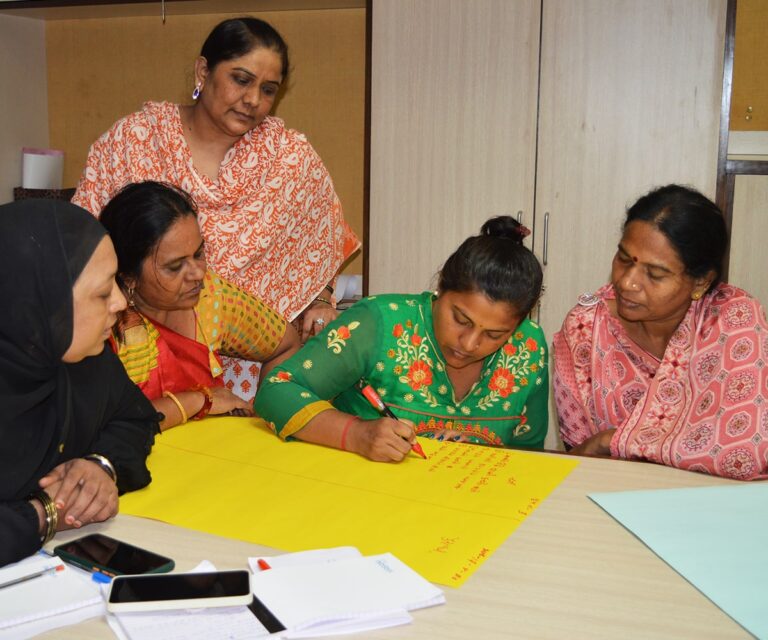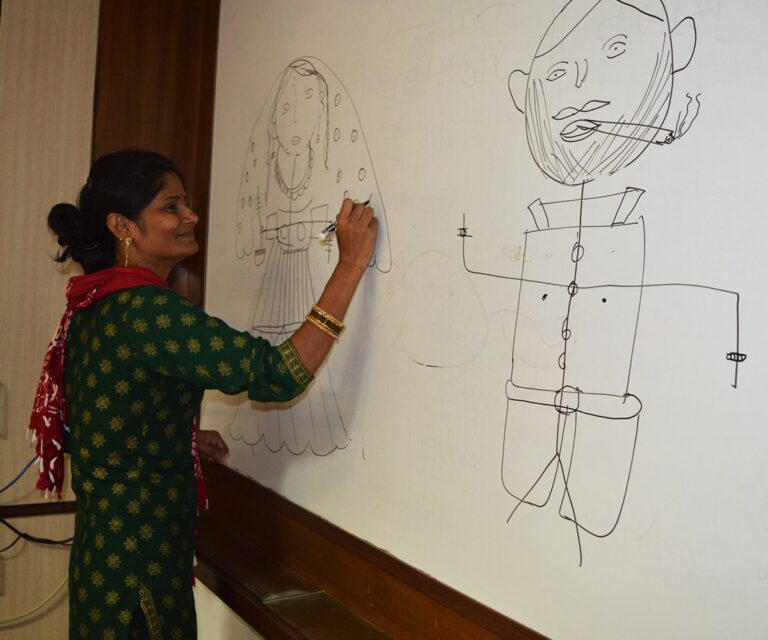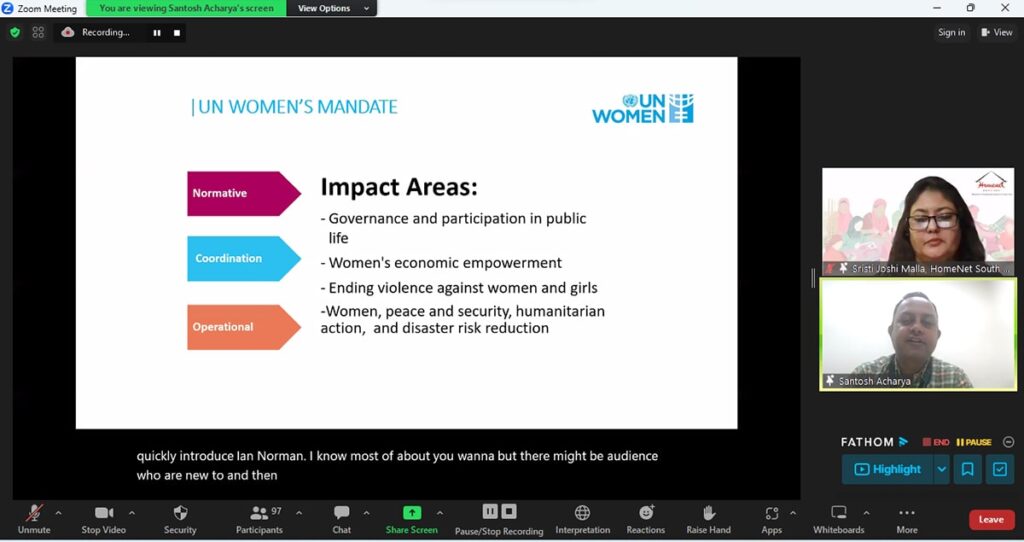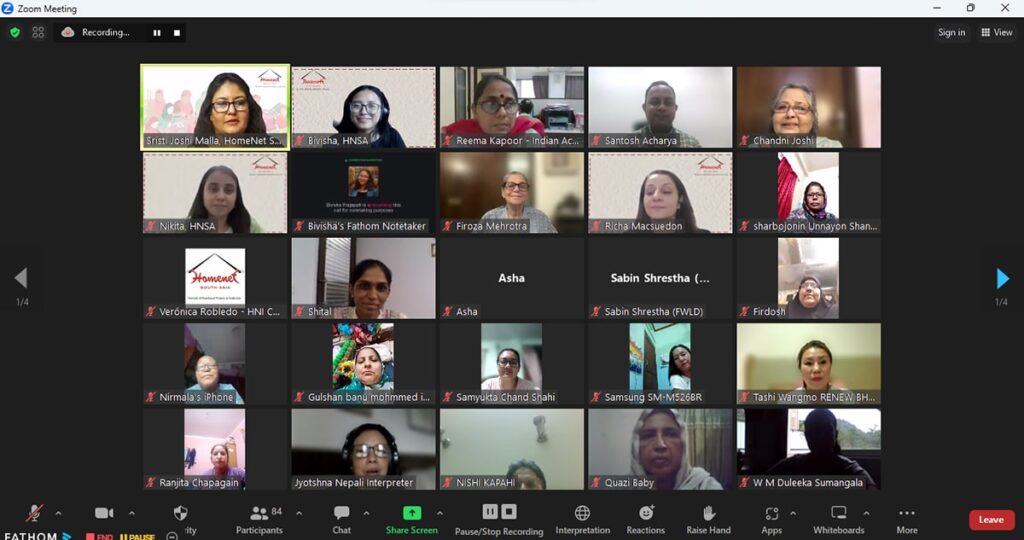Country-wise Policy Papers on the issue of violence against women HBWs: India, Nepal and Bangladesh
HNSA prepared three country-level papers – Bangladesh, India and Nepal- analysing existing policies and laws protecting women workers against violence. The policy papers are aimed to understand the gaps in domestic policies and laws on the issue of violence against women home-based workers and to compare these policies and laws with international standards such as ILO C190 provisions. These papers are part of an effort to advocate for protection of women home-based workers from violence and harassment at the workplace.
You may download the Policy Papers here: India, Nepal, Bangladesh
HNSA affiliates conducted trainings in August 2023 on the issue of violence using the knowledge and skills acquired through participating in a Regional ToT conducted in May 2023
HNSA conducted a regional training of trainers in May 2023 on the issue of violence against home-based workers in Kathmandu, Nepal. 55 participants from eight representative organisations from Bangladesh, Bhutan, India, Nepal and Pakistan participated in a three-day training.
In August 2023, participants from four organizations in India, Bangladesh and Nepal replicated the training in their respective countries. The HBW leaders further trained 60 HBWs on the issue of violence, different types of violence and redressal laws available in the countries.
Photos courtesy of Saathi, a member of HNSA from Nepal.
Photos courtesy of IASEW, a member of HNSA from India
Using ILO Convention 190 to catalyse collective action for a violence free world for HBWs in South Asia- Webinar
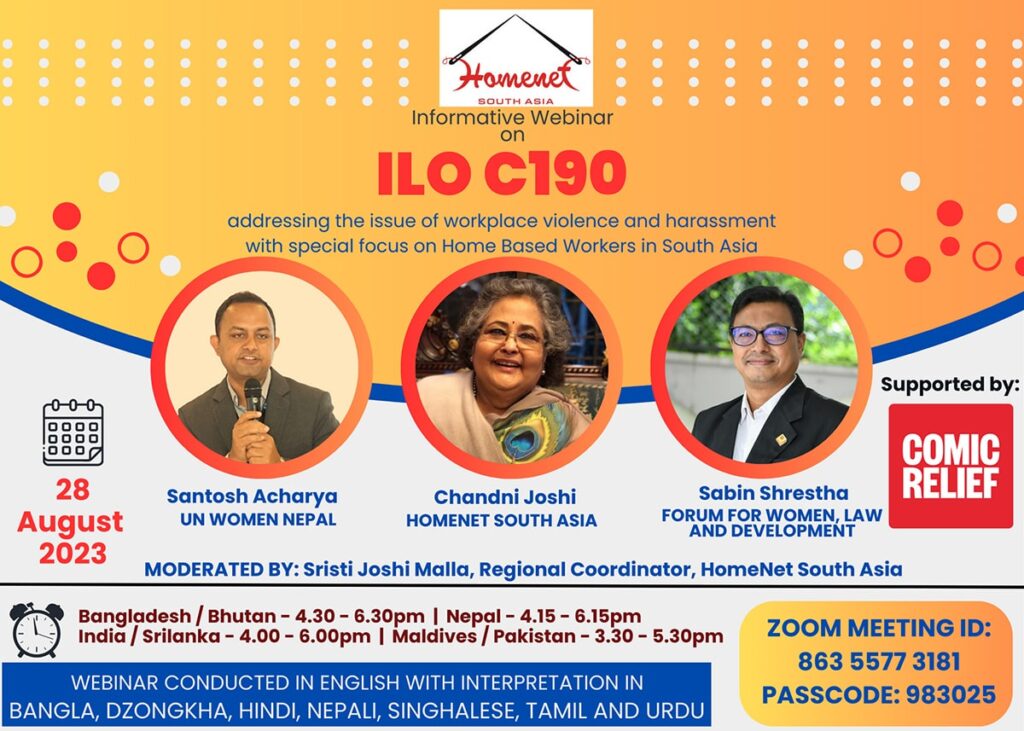
LO Convention C190 is particularly significant for the home-based workers movement as it addresses the issue of workplace violence and harassment against HBWs in its scope.
The International Labour Standard against violence and harassment at the workplace (Convention-190) adopted in 2019 ensures everyone the right to a world of work free from violence and harassment. The C190 instrument provides an opportunity to:
- ensure safer and equitable work environments where women and girls are empowered,
- promote inclusive workspaces and economic structures that value all people especially vulnerable women home-based workers (HBWs) and
- strengthen domestic laws to effectively prevent and combat violence and harassment at the workplace
Thirty two countries have ratified the Convention since its adoption, however no South Asian country has ratified it yet. HNSA held an informative webinar on August 28th, to demystify the Convention, and its relevance for home-based workers in South Asia. We invited home-based workers and their representative organisations from seven South Asian countries to enhance their knowledge about the law in a simplified manner and to share what this law would mean for the home-based workers.
The webinar was chaired by Ms. Chandni Joshi, Enforcer of HNSA, who emphasised on the importance of ratification of C190 by the countries in the region. She highlighted the urgent need to address the issue of violence and encouraged everyone to take action towards a violence free workplace for our home-based workers.
Mr. Sabin Shrestha, Advocate and Executive Director of Forum for Women, Law and Development chaired the session on demystifying the law. He explained the components of the Convention in a simplified manner to make it understandable for the home-based workers. He untangled the different sections including what kinds of violence is covered by the convention.
Mr. Santosh Acharya of UN women highlighted the framework adopted by UN Nepal to address the issue of violence. He talked about the importance of adopting a systematic approach for issues like violence which require sustained multi-pronged efforts to root it out.
The issue of violence affects our home-based workers day to day lives and gravely affects their work and productivity too. There is a need for collective actions by civil society and women workers, and activism to build pressure on the governments to ratify the Convention and reform domestic laws.
The webinar was a step towards raising awareness on this extremely significant law and the need for its ratification by South Asian countries.


